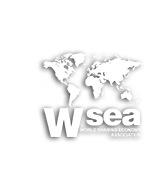


The European Union (German: Europ ä ische Union, French: Union Europ é enne), or EU for short, is headquartered in Brussels, the capital of Belgium. It is developed from the European community. It has six founding member states, namely Germany, France, Italy, the Netherlands, Belgium and Luxembourg. The Union now has 28 Member States and 24 official languages.
In December 1991, the Maastricht summit of the European Community adopted the Treaty of the European Union, commonly known as the Maastricht treaty. On November 1, 1993, the Maastricht Treaty entered into force and the European Union was born. In 2012, the EU won the Nobel Peace Prize.
The Treaty of the European Union has been amended many times and operates in accordance with the Lisbon treaty. Politically, all the member states are democratic countries (2008 economist survey of democratic status), economically the second largest economic entity in the world (Germany, France and Italy are members of the group of eight), and militarily, the vast majority of EU member states are members of the North Atlantic Treaty Organization.
European Council
The European Council, also known as the EU summit or EU summit. The highest decision-making body in the EU. The Council of Europe consists of the heads of state or government of the Member States, the president of the Council of Europe and the president of the European Commission. The Council of Europe shall have a chair for a term of two and a half years, renewable for one term. The first chairman was Herman Van Rompuy, a Belgian. In August 2014, Polish Prime Minister Donald Tusk was elected president of the new European Council and took office on December 1, 2014.
Council of the European Union
The Council of the European Union, also known as the Council of Ministers of the European Union, is the legislative, policy-making and coordinating body of the European Union. The Council is composed of one ministerial representative from each member state, who votes on behalf of the governments of its member states at the Council meeting. The Council is divided into several ministerial councils according to different areas. In addition to the Council of foreign ministers, the president of the Council shall be appointed by Member States in turn for a term of six months.
European Commission
The European Commission, or European Commission for short, is the EU's legislative proposal and executive body. The current committee is composed of 28 members, including 1 Chairman and 7 vice chairmen. The current chairman is Jean Claude Juncker, former Prime Minister of Luxembourg and former chairman of the euro group. He was elected in 2014 for a five-year term. [1]
European parliament
The European Parliament, the EU supervisory, advisory and legislative body. Members of Parliament are directly elected by universal suffrage of Member States for a term of five years. There are 1 speaker and 14 vice speakers with a term of office of 2.5 years. They can be re elected. There are 751 members and 8 party groups in this Parliament. The current speaker is Italian Antonio tayani, who was elected in January 2017.
European Central Bank
Headquartered in Frankfurt, the financial center of Germany, it is the Central Bank of the euro area established in accordance with the provisions of the Maastricht Treaty of 1992. It is the maker, implementer and supervisor of the common monetary policy. The ECB is the product of European economic integration, the first central bank in the world to manage super national currencies, and also a financial institution established to adapt to the issuance and flow of the euro. The responsibilities and structure of the ECB are modeled on the Federal Bank of Germany, independent of EU institutions and governments. The main task of the ECB is to maintain the purchasing power of the euro and the price stability of the euro area. The ECB manages leading interest rates, currency reserves and issuance, and sets European monetary policy. Although the power of monetary policy in the euro area has been centralized, the specific implementation is still the responsibility of the central banks of the member countries of the euro area. The central banks of the euro area still reserve their own foreign exchange reserves, which are provided by the central banks of the member countries according to the proportion of their population and GDP in the euro area.
The Management Committee of the European Central Bank is the highest decision-making body, which is responsible for the formulation of interest rates and the implementation of monetary policy. It is composed of six members of the executive board and central bank governors of member countries of the euro area, and meets regularly every month.
With the establishment of the European Banking Union, the ECB has been entrusted with the function of supervising the major banks in the EU, and will perform this function together with the competent authorities of Member States from November 2014.
European Investment Bank
The European investment bank, headquartered in Luxembourg, is a policy bank of the European Union. It is a joint venture funded by EU Member States and enjoys an independent legal status. Its purpose is to promote the realization of EU policy objectives. The bank can provide loans to the public and private sectors, specifically for EU regional development, small and medium-sized enterprises, environmental engineering, transportation, energy, R & D and innovation, as well as cooperation agreements signed between the EU and more than 140 countries. For the sake of credit security, EIB never loans a project in full, and generally only provides 30-40% of the project investment.
The main objective of EIB is to invest in projects outside the EU according to the development assistance or cooperation plan signed by the EU and a third country. Since 1993, its loan amount has exceeded that of the world bank, becoming the largest multilateral preferential credit provider in the world.
